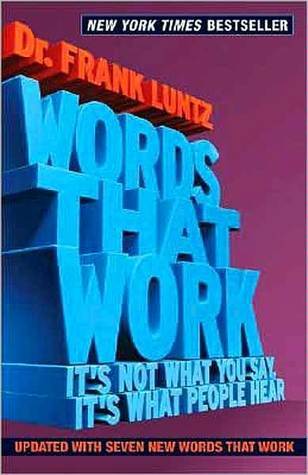More on this book
Community
Kindle Notes & Highlights
by
Frank Luntz
Read between
August 10 - August 25, 2020
Language, politics, and commerce have always been intertwined, both for better and for worse.
It’s not what you say, it’s what people hear. You can have the best message in the world, but the person on the receiving end will always understand it through the prism of his or her own emotions, preconceptions, prejudices, and preexisting beliefs.
How that person perceives what you say is even more real, at least in a practical sense, than how you perceive yourself.
Words that work, whether fiction or reality, not only explain but also motivate. They cause you to think as well as act. They trigger emotion as well as understanding.
it shows how you can achieve better results by narrowing the gap between what you intend to convey and what your audiences actually interpret.
“Great language has exactly the same properties as great music,” says Aaron Sorkin, the brilliant writer/creator of the hit television drama The West Wing. “It has rhythm, it has pitch, it has tone, it has accents.”* So in a cacophonous world, how do you ensure that your musical note stands out?


